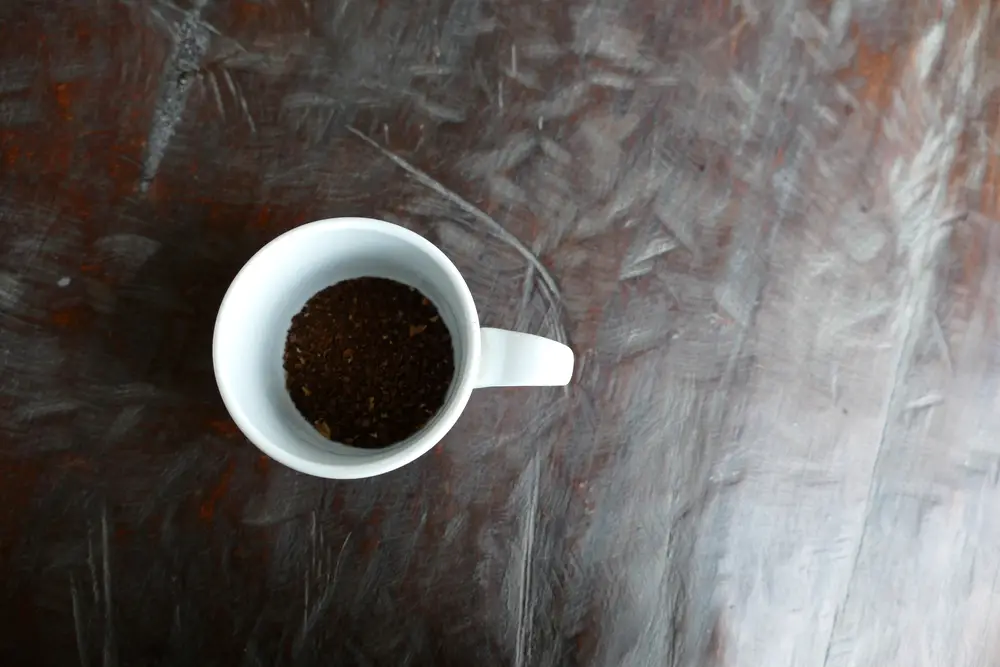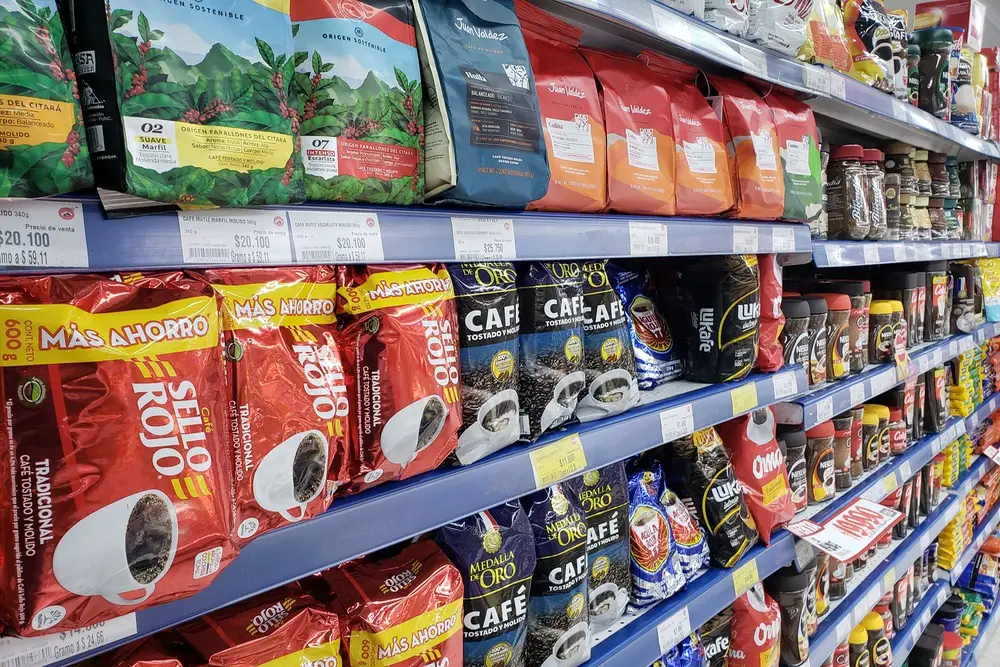Will your teeth fall out if you drink too much coffee? Let’s find out here.
Table of Contents
Effects of coffee consumption on teeth
Coffee (like other beverages like wine and tea) contains tannins. These tannins are a type of polyphenols (antioxidants) that are good for the body because they help cells function.
However, these tannins can also stick to the teeth and leave an undesirable yellow tinge there.
The problem is that it only seems to take one cup of coffee a day to leave those yellow stains on your teeth.
Coffee consumption and tooth damage
As we mentioned earlier, coffee can stain teeth, but unfortunately that’s not the only thing it does to teeth. Don’t be alarmed, however, as the effects of coffee on teeth are generally reversible.
The first thing to know about coffee is that coffee is an acidic beverage. This means that it damages teeth by attacking the enamel.
Enamel is a substance that forms a protective layer that covers the entire surface of teeth, giving them great resistance and natural hardness to the elements.
So, coffee and tooth enamel don’t mix well, especially if you drink your coffee with sugar, as particles from the drink get stuck in the crevices and gaps in your teeth.
This leads to bacteria feeding on this residue and if you are not careful you could even get tooth decay or other diseases that spread to your gums.
This is important because if left untreated, a tooth injury will contribute to tooth decay or other lesions that can lead to the loss of the affected tooth.
So, coffee can cause a lot more than just stains on your teeth. Luckily, both stains and bacteria are easy problems to solve.
Coffee can yellow your teeth
Because of its acidity, coffee can cause tooth decay by attacking tooth enamel. Also, the acidity can make teeth appear yellow (especially if teeth are not cleaned properly). The bottom layer of the teeth, the dentin, is exposed.
This creates a yellow discoloration that gradually covers the teeth.
Coffee and the occurrence of tooth sensitivity
Also, because the enamel is weakened, it cannot protect the tooth from possible damage caused by bacteria.
At the same time, the teeth become more sensitive to temperature stimuli, which can lead to tooth sensitivity.
So, if you experience any discomfort with your teeth, especially when you eat something cold, you should see your dentist as soon as possible.
Black coffee is the least harmful to your teeth
Many dentists agree that black coffee is the least harmful to dental health. This applies at least in comparison to other drinks such as lemonades, as these contain a lot of sugar, which promotes the development of tooth decay.
This is why dentists recommend drinking black coffee black or with very little sugar. Experts also recommend avoiding cream as much as possible, since it too often contains sugar.
Not only coffee is responsible for tooth damage
There are many medications that we commonly consume that are just as bad for our teeth as coffee or even worse.
The coffee is simply the one that gets the worst publicity. That’s why it’s important to know what other foods can be harmful to your oral health.
So, we find that drinks such. e.g.:
- Red wine
- Tea (especially black tea)
- Dark Juices
- Dark carbonated drinks
Just as much as coffee are guilty of deteriorating the well-being of our teeth.
There are other foods that can stain teeth, and the worst part is that they are healthy foods. Some examples are:
- Berry
- Tomato sauce
- Dark Vinegar
- Soy sauce
How to avoid tooth decay caused by coffee and other drinks?
After all that bad news, here are some tips on how to reduce and prevent the harm caused by coffee and related beverages.
Maintain good cleaning habits
Dentists recommend that ideally you should brush your teeth after every meal.
And while we know that’s not always possible, especially given the hectic pace of many people’s lives, you should at least try to brush your teeth after every meal.
At the very least, try to brush your teeth after each “big meal of the day”—that is, after breakfast, after lunch, and after dinner.
Also, don’t forget to use dental floss, interdental sticks or brushes, and mouthwash whenever possible. It is also important to go to the dentist at least twice a year for a check-up and for a professional cleaning, usually by a DH.
The color of the drink can help
You can add a little milk to the coffee or tea to lighten its color.
That’s because the color of dark drinks has been linked to tooth staining, so dark juices, coffee, and black tea are more likely to cause staining.
However, this will not do much against the acidity of these drinks.
Use straws
One of the easiest ways to prevent tooth damage is to drink coffee through a straw. This is because straws help protect teeth by reducing the amount of coffee that goes into your mouth.
This way you can prevent most of the visible stains from appearing as the coffee stays in the straw longer than on the outside.
The latter will help ensure that your front teeth are less exposed to the liquid. However, use a paper straw as plastic straws are too polluting.
Drinking water
After drinking something acidic, it is recommended to drink some water. This allows you to wash away some of the acid still stuck to your teeth. Since the acid concentration on the teeth is then lower, the damage caused by the acid is also less.
Drinking water regularly is also important for your health. Also, keep in mind that coffee can have a mild diuretic effect, and while it’s unlikely to dehydrate you, it’s always good to have a bottle of water with you.
Don’t brush your teeth immediately after coffee
Yes, we just told you that it’s best to brush your teeth after every meal, but there’s an exception.
After eating acidic foods, you should wait at least 15 minutes before brushing your teeth.
Because if you put off brushing your teeth, your teeth can recover from the acid. You also help the enamel harden again so that it can protect your teeth again.
Keep in mind that this also applies to other dark drinks, such as tea and soft drinks.
Eat fruits and vegetables
Crunchy, less acidic fruits like apples or pears are great for cleaning teeth after a cup of coffee (or any other time of the day).
Because when you chew these fruits, you produce more saliva. And that’s important, because saliva helps (at least to some extent) remove the acids and impurities that cause stains and infections.
While fruit and saliva are no substitute for toothpaste, dental floss, and mouthwash, they do help teeth ward off harmful substances.
Try an electric toothbrush
According to several dentists, electric toothbrushes are significantly better at removing plaque and other debris from teeth than traditional toothbrushes.
In addition, these electronic toothbrushes also seem to be better at removing traces of acid on the teeth.
Final Notes
While we’ve seen that coffee can unfortunately affect our oral health, the good news is that with good oral hygiene habits, you can counteract the negative effects of coffee.
However, you also need to change your drinking habits, because not only coffee can damage your teeth. Tea and carbonated drinks can also be harmful to oral health.
Therefore, apart from good oral hygiene and moderate consumption, the first thing you should do is seek advice from a dentist on what is best for the well-being of your teeth.



